Rachel Held Evans's Blog, page 16
September 17, 2014
“God and the Gay Christian” Discussion, Week 1
Over the next few weeks, on Wednesdays, we will be discussing Matthew Vines’ book, God and the Gay Christian: The Biblical Case in Support of Same-Sex Relationships.
I chose this particular book because I think it provides the most accessible and personal introduction to the biblical and historical arguments in support of same-sex relationships, and because Matthew is a theologically conservative Christian who affirms the authority of Scripture and who is also gay. His research is sound and his story is compelling. And he’s a friend—someone I like and respect and enjoy learning from.
Today we look at the Introduction, Chapter 1, and Chapter 2.
“Reclaiming Our Light”Right from the start, Matthew shares with the reader two important elements of his identity: 1) that he is gay, and 2) that he is a theologically conservative Christian who holds a “high view” of the Bible.
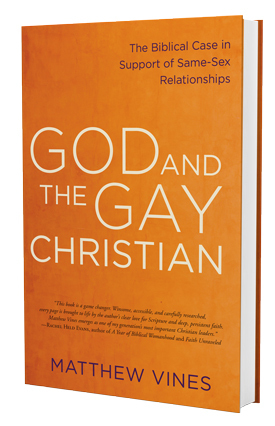
“That means I believe all of Scripture is inspired by God and authoritative for my life,” Matthew writes of the second. “While some parts of the Bible address cultural norms that do not directly apply to modern societies, all of Scripture is ‘useful for teaching, for reproof, for correction, and for training in righteousness.’ (2 Timothy 3:16-16).”
Now for some, this may seem like a conflict. I remember being told by pastors and church leaders that “gay Christian” (or "bisexual Christian" or "transgender Christian") is an oxymoron and that no one who holds a high view of Scripture can support same-sex relationships. But Matthew’s aim with God and the Gay Christian is to show that “Christians who affirm the full authority of Scripture can also affirm committed, monogamous same-sex relationships.”
It’s an ambitious goal, and it’s one that Matthew tackles by bringing his story and insights alongside the research of dozens of scholars whose work on the topic he studied meticulously for four years, dropping out of Harvard so that he could devote himself to learning what it meant for him to be gay and Christian.
“My prayer,” he writes, “is that [the book] opens up a conversation in the Christian community that is truly in the spirit of Jesus. The fiercest objections to LGBT equality—those based on religious belief—can begin to fall away. The tremendous pain endured by LGBT youth in many Christian homes can become a relic of the past. Christianity’s reputation in much of the Western world can begin to rebound. Together, we can reclaim our light.”
A Tree and Its FruitMatthew speaks highly of his Christian upbringing, his loving parents, and the conservative Presbyterian church “filled with kindhearted, caring Christians” in which he was raised. Like a lot of us, he asked Jesus into his heart when he was very little—just three years old. And like a lot of us he, “recommitted” a few times before middle school….just to be safe.
Matthew loved God, loved his family, loved Scripture, and loved the Church. And yet, for years, he held on to a secret that he knew might very well jeopardize his relationship with them all: he knew he was gay.
This reality generated a lot of anxiety in Matthew’s life. He had observed what happened to a friend of his who also attended his church, a young man who often shared his musical talents with the congregation on Sunday morning and was celebrated as bright, committed, and kind—a beloved member of the community…until he came out as gay. Matthew’s friend encountered stigma and shame regarding his “decision” and eventually gave up on church, Scripture, and his faith.
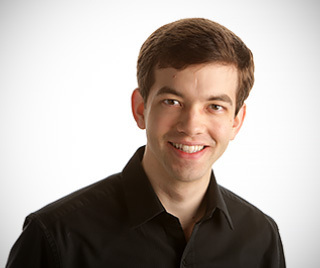
But Matthew didn’t want to give up on his faith.
Even Matthew’s father once told his son that he assumed that if God was against homosexuality, then God wouldn’t make anyone gay, so those who “struggle with same sex attraction” could develop heterosexual attractions over time with enough effort and prayer.
But Matthew couldn’t change his sexual orientation.
Finally, Matthew worked up the courage to come out to his family. When I saw that Matthew had titled this section of his book “My Dad’s Worst Day,” tears gathered in my eyes. It breaks my heart that we have created a culture in which a son or daughter bravely telling the truth about his or her sexuality can bring such devastation to a family.
You have to read the story for yourself to catch the full impact, but I’m happy to report that, after many months of struggling, questions, and tears, Matthew’s parents came around to supporting their son, fully. The testimony of their love for him shines through the pages of this book in a way that makes me both hopeful and sad because not every gay, lesbian, bisexual or transgender child is this fortunate. For many, simply telling the truth is the beginning of a nightmare.
Along with his parents, Matthew began carefully studying the Bible’s few references to same-sex behavior (which will be examined, at length, throughout the rest of the book), and rethinking his position on the matter.
Though he had always been taught by his church that homosexuality was a chosen and sinful “lifestyle,” this teaching did not match up with Matthew’s lived experience.
“As I became more aware of same-sex relationships,” he wrote, “I could not understand why they were supposed to be sinful, or why the Bible apparently condemned them. With most sins, it wasn’t hard to pinpoint the damage they caused. Adultery violates a commitment to your spouse. Lust objectifies others. Gossip degrades people. But committed same-sex relationships did not easily fit this pattern. Not only were they not harmful to anyone, they seemed to be characterized by positive motives and traits instead, like faithfulness, commitment, mutual love, and self sacrifice. What other sin looked like that?”

© 2014 Internet Archive Book Images, Flickr | PD | via Wylio
This led some in Matthew’s church (he had come out to a small group) to accuse him of “elevating his experience over Scripture.” But as Matthew points out, he wasn’t asking his friends to revise the Bible based on his experience, he was asking them to reconsider their interpretation of the Bible.
Christians have often had to reconsider their interpretation of the Bible in light of new information, he argued, just as many did when they concluded slavery was immoral in spite of biblical instructions that seem to support it. Furthermore, while Scripture tells us not to rely solely on our experiences, it cautions Christians against ignoring experience altogether. The early Church decided to include Gentiles without requiring them to undergo circumcised or obey kosher, a controversial conclusion based largely on Peter’s testimony and experience. In Matthew 7:15-20, Jesus says that believers will recognize false teachers by the fruit in their lives. If something bears bad fruit, it cannot be a good tree. And if something bears good fruit, it cannot be a bad tree. This assessment is typically made based on experience.
“Neither Peter in his work to include Gentiles in the church nor the abolitionists in their campaign against slavery argued that their experience should take precedence over Scripture,” writes Matthew. “But they both made the case that their experience should cause Christians to reconsider long-held interpretations of Scripture. Today, we are just as responsible for testing our beliefs in light of their outcomes—a duty in line with Jesus’s teachings about trees and their fruit.”
…Which raises a few questions.
If same-sex relationships are really sinful, then why do they so often produce good fruit—loving families, open homes, self-sacrifice, commitment, faithfulness, joy? And if conservative Christians are really right in their response to same-sex relationships, then why does that response often produce bad fruit—secrets, shame, depression, loneliness, broken families, and fear?
Eventually, after careful study and in light of new information, even Matthew’s father changed his mind. Matthew writes: “Instead of taking the references to same-sex behavior as a sweeping statement about all same-sex relationships, my dad started to ask: is this verse about the kind of relationship Matthew wants, or is it about abusive or lustful behavior? Is this passage about the love and intimacy Matthew longs for, or does it refer to self-centered, fleeting desires instead? After much prayer, study, and contemplation, Dad changed his mind. Only six months before, he had never seriously questioned his views. But once he saw the fruit of his beliefs more clearly, he decided to dive deeper into the Bible. In that process, he came to what he now regards as a more accurate understanding…”
Telescopes, Tradition, and Sexual OrientationBefore getting into a more detailed analysis of the various biblical passages involved, Matthew takes Chapter 2 to argue that new information about sexuality ought to compel Christians to rethink their interpretation of Scripture. He reminds readers that Galileo was accused of heresy by the Church when he presented evidence that contradicted centuries of tradition and accepted biblical interpretation regarding the earth’s place in the universe. It would take Christians many years to change their minds, but eventually they did.
“Christians did not change their minds about the solar system because they lost respect for their Christian forbearers or for the authority of Scripture,” he writes. “They changed their minds because they were confronted with evidence their predecessors had never considered. The traditional interpretation of Psalm 93:1, Joshua 10:12-14, and other passages made sense when it was first formulated. But the invention of the telescope offered a new lens to use in interpreting those verses, opening the door to a more accurate interpretation.”
Similarly, in recent generations, our understanding of sexuality has radically changed.
For example, for most of human history, homosexuality was not seen as a different sexual orientation but rather as a manifestation of normal sexual desire pursued to excess—a behavior anyone might engage in if they let their passions get out of hand. Matthew highlights multiple examples from history and literature to show that this was simply the assumption for many centuries.
“I’m not saying gay people did not exist in ancient societies,” Matthew writes “I’m simply pointing out that ancient societies did not think in terms of exclusive sexual orientations. Their experience of same-sex behavior led them to think of it as something anyone might do….No ancient languages even had words that mean ‘gay’ or ‘straight.’”
Of course now we are beginning to understand that, while human sexuality is complex and is perhaps best understood as existing along a continuum, many people report having fixed same-sex orientations that do not change. (Others experience sexual attraction to both men and women. Still others lack sexual attraction altogether.) “Reparative therapy,” which seeks to change sexual orientation, has been shown to be ineffective and potentially dangerous, discouraged most notably by many of the very Christian leaders who once promoted it within the Church.
In addition, in the ancient cultures from which the Bible emerged strict, patriarchal gender roles were the norm and where procreation was a matter of survival. Because women were presumed to be inferior to men, nothing was more degrading for a man than to be seen as womanly. (Guess some things never change, huh?) So in Rome, it was considered acceptable for an adult male citizen to have sex with slaves, prostitutes, and concubines regardless of gender, but only if he took the active role in the encounter. A same-sex encounter that placed a man in a passive (considered “womanly”) role would be considered humiliating. (This explains why same-sex rape was—and is— sometimes used to humiliate an enemy after defeat.)
All of these ancient understandings of sexuality affect how same-sex behavior discussed in Scripture, and all of them should call into question the notion that people—and the Church—have a held just one single “traditional” view of same-sex behavior.
In light of new information and experience, maybe it’s time to reexamine some of our assumptions and interpretations.
...Next week, we'll look at just a single chapter from God and the Gay Christian, which addresses celibacy.
Questions for Discussion:1. How have your experiences—or those of friends and family—shaped how you are approaching this conversation?
2. What do you think of Matthew’s response to the challenge that he is “elevating his experience over Scripture.”
3. Is it helpful or fair to compare evolving understandings of human sexuality to evolving understandings of, say, the solar system or slavery?
I will be monitoring the comment section closely over the next 24 hours, after which the thread will be closed. Thanks for your participation!



September 16, 2014
Canaanites, Reality Checks, and Letting the Bible Out of the Box
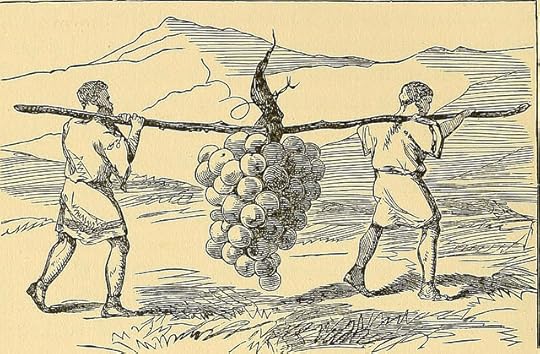
© 2014 Internet Archive Book Images, Flickr | PD | via Wylio
I’ve always been a Bible nerd.
Growing up in an evangelical church, I memorized all the verses in my AWANA notebook and boasted enough badges and pins on my bright red Sparky vest to rival a five-star general. I was elected president of the Bible Club in high school, and in college I minored in biblical studies at a college famous for teaching students to analyze the world with a “biblical worldview.” The fat study Bible I carried under my arm bore the highlighter marks of a devoted reader, its pages wrinkled and worn.
I’ve also always had questions about the Bible.
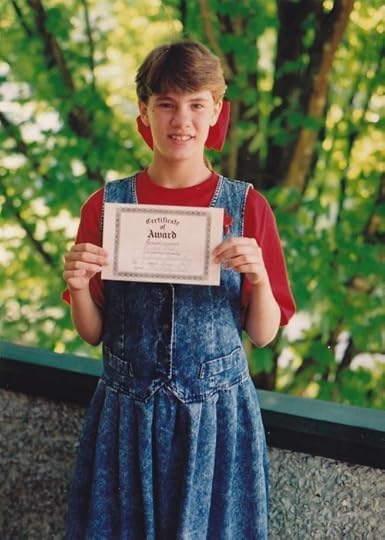
Have I ever mentioned that I won the "Best Christian Attitude Award" four years in a row in elementary school? Or that my bangs accounted for about 40% of my body weight?
Once, in Sunday school, I raised a slap-bracelet-bedecked hand to ask why God drowned all the world’s animals in the Great Flood—save those on the ark—when it was people who had sinned, not innocent penguins and kangaroos. (She told me to go home and ask my father.)
In high school, in the midst of yet another noble attempt to read the Bible in a year, I remember drawing breath upon reaching the story of the Battle of Jericho and realizing that after the walls came a-tumblin’ down, the Israelites “destroyed with the sword ever living thing in it—men and women, young and old, cattle, sheep and donkeys,” all on God’s orders. In any other context, this would be condemned as genocide. Why would a good and loving God call for the slaughter of little children?
A tipping point occurred during a sleepy, 9-a.m. Introduction to World Literature class when my class read the Epic of Gilgamesh, an ancient Mesopotamian poem purportedly written before the book of Genesis, which tells the story of a worldwide flood, a favored family, and an ark full of animals, only with Sumerian gods and heroes at its center instead of the familiar Yahweh. The similarity in style and content between the stories I knew from the Bible and the myths of other Mesopotamian cultures suddenly made those strange tales of talking snakes and forbidden fruit and boats packed with animals seem colloquial, routine—nothing more than myths operating from the religious and literary conventions of the day.
There were other issues too: The way the accounts of Israel’s monarchy contradicted one another, the way Jesus and Paul quoted Hebrew Scripture in ways that seemed to stretch the original meaning, the fact that women were considered property in Levitical Law, the way both science and archeology challenged the historicity of so many biblical texts, and the fact that it was nearly impossible for me to write a creative retelling of Resurrection Day because each of the gospel writers tell the story so differently, sometimes with contradictory details.
The Bible just didn’t seem to want to behave the way I was told it was meant to behave—as a scientifically-provable, historically-accurate account of God’s actions in the world and a cohesive, inerrant rulebook for how to think and live as a Christian.
Invariably, when I expressed concern over these issues, well-meaning apologists would refer me to Gleason Arche’s massive Encyclopedia of Bible Difficulties, a heavy volume that seeks to provide the reader with sound explanations for every conceivable puzzle found within the Bible—from whether God approved of Rahab’s lie, to where Cain got his wife. But encountering a 500-page book listing hundreds of apparent biblical contradictions, half of which I didn’t even know existed before, did not have the desired affect and in fact only made things worse.
After about a decade of doubt, study, and frustration, I made a resolution: to pursue the truth about the Bible without compromising my intellectual integrity, regardless of whether that pursuit led me to affirm my long-held presuppositions or whether it forced me to change my mind. I wanted to accept the Bible on its own terms, without projecting my evangelical community’s expectations upon it. I wanted to let it out of the box.
Truth be told, this is a somewhat futile endeavor, as no one can approach a text with complete objectivity, somehow setting their culture, experience, background, gender, and ethnicity aside. But the pursuit did start me on an exciting, surprising journey toward loving the Bible more for what it is, not what I want it to be.
Life would never be the same.
"The Bible Tells Me So"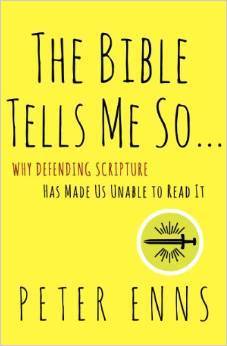
As I’ve mentioned here on the blog before, one of my favorite guides on this journey has been Old Testament scholar (and friend) Peter Enns. Pete’s books, blogs and articles just make sense to me—as a skeptic, as a literature lover, and as a Christian. The guy speaks my language, and he consistently writes with unusual wit, clarity and honesty.
This is especially true of his latest book, The Bible Tells Me So: Why Defending Scripture Has Made Us Unable to Read It, which released last week and which I highly recommend.
I’m not sure how else to describe this book except to say that reading it is an experience. Never have I encountered a book on biblical interpretation that manages to be as simultaneously challenging and funny, uncomfortable and liberating, intellectually rigorous and accessible, culturally significant and deeply personal. It’s a book that invites the reader to really wrestle with Scripture, and it’s not for the faint of heart.
Enns begins by observing that “when you read the Bible on its own terms, you discover that it doesn’t behave itself like a holy rulebook should.” There are contradictions, discrepancies, bizarre stories, ethically-troubling scenarios, and puzzles. But “the problem isn’t the Bible,” Enns contends. “The problem is coming to the Bible with expectations it’s not set up to bear.”
“What if the Bible is just fine the way it is?” he asks. “What if it doesn’t need to be protected from itself? What if it doesn’t need to be bathed and perfumed before going out in public? And what if God is actually fine with the Bible just as it is without needing anyone to stand guard over it? Not the well-behaved-everything-is-in-order version we create, but the messy, troubling, weird, and ancient Bible we actually have?”
Enns goes on to tell his own story of asking tough questions about the Bible as a devoted Christian and a scholar, often at great personal and professional cost. “My goal with this book,” he writes, “is to assure people of faith that they do not need to feel anxious, disloyal, unfaithful, dirty, scared, or outcast for engaging these questions of the Bible, interrogating it, not liking some of it, exploring what it really says, and discerning like adult readers what we can learn from it in our own journey of faith…We respect the Bible most when we let it be what it is and learn from it rather than combing out the tangles to make it presentable.”
And then he dives right in, starting with what are perhaps the most troubling, problematic, and upsetting passages in Scripture: those that describe Israel’s conquest of Canaan and the supposedly God-ordained ethnic cleansing that conquest entailed.
Enns skillfully dismantles some of the common responses to these passages—that the Canaanites were super-duper evil and therefore deserved to be exterminated, that war with the Canaanites was inevitable, that God’s bloodthirsty portrait in Joshua is balanced out by more flattering portraits elsewhere in Scripture, that questioning biblical accounts of God-ordained genocide is sinful because God can do whatever God wants to do, etc—before offering his own controversial, yet well-argued, conclusion: “God never told the Israelites to kill the Canaanites. The Israelites believed that God told them to kill the Canaanites.”
I told you this book is not for the faint of heart.
Enns argues that as ancient tribal people, the Israelites saw their God in tribal ways. In describing their relationship with God and the world around them, they spoke their own cultural language. “The Bible,” writes Enns, “is the story of God told from the limited point of view of real people living at a certain place and time….The Bible looks the way it does because ‘God lets his children tell the story,’ so to speak.”
This doesn’t mean that the Bible "lies," or that our ancient ancestors were barbarians to simply be dismissed. It just means that whenever God enters the human story, God speaks to (and through) people using their own language, their own view of the world. And we make an enormous mistake when we project our modern, Enlightenment-shaped presuppositions regarding history and storytelling onto writers who were addressing ancient, pre-modern questions through ancient, pre-modern literary genres.
Furthermore, Enns argues, the ancient tribal description of God is not the last word.
“These ancient writers had an adequate understanding of God for them in their time,” he writes, “but not for all of time—and if we take that to heart, we will actually be in a better position to respect these ancient voices and see what they have to say rather than whitewashing the details and making up ‘explanations’ to ease our stress. For Christians, the gospel has always been the lens through which Israel’s stories are read—which means, for Christians, Jesus, not the Bible, has the final word.”
Enns goes on to explain how much of the Old Testament was written while the people of Israel were in exile and therefore seeks to respond to questions of Jewish identity. The stories of Genesis and Exodus, Joshua and Judges, and many others can be better understood as origin stories that helped the people of God make sense of their place in the world.
“The biblical writers were storytellers,” says Enns. “Writing about the past was never simply about understanding the past for its own sake, but about shaping, molding, and creating the past to speak to the present. The Bible presents a variety of points of view about God and what it means to walk in his ways. This stands to reason, since the biblical writers and lived at different times, in different places, and wrote for different reasons.”
This is not only true for the writers of the Hebrew Scriptures but also for Jesus and for the authors of the New Testament. Jesus, like other first-century Jews, read his Bible creatively, seeking deeper meaning that transcended the boundaries of the words of Scripture. “A crucified and resurrected messiah,” writes Enns, “was a surprise ending to Israel’s story. To spread the word of this messiah, the earliest Christian writers both respected Israel’s story while also going beyond that story. They transformed it from a story of Israel centered on Torah to a story of humanity centered on Jesus.”
Citing multiple examples from Genesis to Revelation, Enns shows how the many writers of Scripture used stories, poems, letters, and accounts written in their own voice, with their own assumptions and agendas, to tell the story of God, which, in various and complex ways ultimately bears witness to Jesus Christ.
“The Bible doesn’t say, ‘Look at me!’” writes Enns. “It says, ‘Look through me.”
All of this leaves us with a Bible that includes fissures and tensions, contradictions and questions, a Bible that invites wrestling, conversation, and a variety of interpretations (which Enns is quick to note is a reality that has long been celebrated, rather than glossed over, in the Jewish community).
It’s hard to do justice to The Bible Tells Me So with a summary, and already I’ve seen several bloggers misrepresent it, (most having not bothered to actually read it). One does not have to agree with all of Enns’ conclusions to be challenged and inspired by this book, and one need only look to the list of sources in the back to dig deeper on one’s own time.
What I appreciated most about The Bible Tells Me So was its tell-it-like-it-is approach. The book takes you from one reality check to the next—bringing science, history, archeology, and scholarship into the conversation without apology—but with gentle good humor and disarming honesty. This is one of the only books I’ve ever read that addressed the conquest of Canaan without either glossing over the genocide or offering feeble, inadequate defenses of it. It looks Scripture straight in the eye, without flinching, and in so doing manages to be both unsettling and profoundly liberating.
Enns concludes:
“This is the Bible we have, the Bible where God meets us. Not a book kept at safe distance from the human drama. Not a fragile Bible that has to be handled with care lest it crumble in our hands. Not a book that has to be defended 24/7 to make sure our faith doesn’t dissolve. In other words, not an artificially well-behaved Bible that gives false comfort, but the Holy Bible, the Word of God, with wrinkles, complexities, unexpected maneuvers, and downright strangeness. This is the Bible God has given his people. This Bible is worth reading and paying attention to, because this is the Bible God uses, as he always has, to point his readers to deeper trust in him. We are free to walk away from this invitation, of course, but we are not free to make the Bible in our own image. What the Bible looks like is God’s call, not ours.”
I’m beginning to think I will always be the sort of person who struggles to reconcile my love of Scripture with my questions about it.
And thanks to this book, and others, I’m beginning to think maybe that’s okay.
***
Check out The Bible Tells Me So by Peter Enns. Note: Though I was provided with a complimentary copy of this book by the publisher, I was not compensated for this review or discussion.



September 14, 2014
Sunday Superlatives 9/14/14
Most Fascinating:
The Australian Ballet with “En Pointe!”
Most Powerful:
Ben Moberg with “Insomniac Christians”
“I give up on the imperative that I can reach God by my own means. I give up on all the ways I should on myself and accept that I am already accepted. There is no ladder to get me there. There is no step-by-step that will land me in God’s good graces. I am in it. I am here. I am lying in the hallowed ground of the love of God.”
Most Encouraging:
Sarah Hofius Hall features Rv. Bill Carter in “Jazz Belongs in Church”
“At First Presbyterian Church of Clarks Summit, Pennsylvania, jazz music empowers. It breaks through isolation, leads to reflection and encourages a spirit of community. For the last 23 years, Carter has organized a yearly jazz communion on the Sunday before Labor Day, bringing his jazz band, his congregation and visitors together. Now the nationally recognized jazz ministry is expanding to offer four jazz vespers services in the next year as a way to explore the powers of music and healing.”
Most Challenging:
Drew Hart at The Christian Century with “Beyond a White Privilege Model”
“…A society dominated by white control can’t be fixed by white people taking control of the situation. The failure in the white privilege stewardship model, is that it inherently affirms and utilizes the very thing that it is called to resist and counter. If the answer to our racial problems is that white people must run things, call the shots, and be the saviors to the world, then we have missed the mark.”
Most Insightful:
Sandra Glahn with “’Act Like Men’: What Does Paul Mean?”
“It is worth noting that the NIV renders the phrase I italicized as ‘be courageous’; the NET goes with ‘show courage.’ And indeed the emphasis is not about gender, but maturity—about being a grown-up. Paul made a similar contrast between ‘adult man’ and ‘child’ when he wrote three chapters earlier, ‘When I was a child, I spoke as a child, I understood as a child, I thought as a child; but when I became a man, I put away childish things’ (13:11). So in summary, he contrasts being a man with being a child, not with being a woman.”
Most Beautiful:
Fall Colors Around the World
Most Urgent:
Boz Tchividjian with “#WhyIStayed: How Some Churches Support Spousal Abuse”
“Instead of helping vulnerable individuals understand the importance of reporting this criminal behavior, too many within churches prefer to push victims back into the arms of abusers as they congratulate themselves and praise God on another successful “reconciliation”. These victimized spouses stay with those who hurt them, resigned to the hopeless belief that is what God wants them to do.”
Most Inspiring (via Tony Jones):
Yale Divinity School with “Theology of Joy: Jürgen Moltmann & Miroslav Volf”
Best Analysis:
Marg Mowczko with “But the Twelve Apostles are all Male”
“Once Jesus had fulfilled all the requirements of the Old Testament with his death and resurrection, the old rules and restrictions became obsolete. No longer were disciples to be only Jewish. Jesus commissioned his disciples to make more disciples from every nation (Matt. 28:19 cf Acts 9:36). These other disciples included Gentiles and women.”
Best Response:
Sarah Bessey with “Be Not Afraid: A Letter to My Charismatic Brothers and Sisters”
“We are living out of our worst fears instead of our best hopes. We are teaching and preaching, we are writing, we are leading, we are praying out of crippling fear instead of the hope of Christ. This saddens me because it is so far from our historical roots as charismatic/pentecostals. And it is also so antithetical to the Holy Spirit.”
Best Reflection:
Donald Miller with “Why I’m glad I’m not the same guy who wrote ‘Blue Like Jazz’”
“I’m so grateful I’m not the same guy who wrote Blue Like Jazz. Certainly I still love the book and am grateful for it, but it’s been ten years now and I’ve changed. If I haven’t changed, something is drastically wrong. People are designed to grow and if they don’t it’s because something’s wrong.”
Best Interview (nominated by Haley Compean)
Tavis Smiley on The Daily Show
Best Writing (nominated by D.L. Mayfield)
Amy Peterson with “Wanderlust: A Personal History”
“I begin to wonder if I, like the brothers at Taize and the desert monks, need to learn the discipline of stability. Do I need roots, when this earth is not my home? That third instruction from Saint Anthony sinks like a seed into the dark recesses of my heart and lies dormant for a long time: In whatever place you live, do not easily leave it.”
Best Conversation:
Rob Bell interviews Peter Enn
s
“…The Bible isn’t a rulebook for Christian living. It is a narrative that has movement and a trajectory.”
[Look for a review of Enns’ book on the blog this week!]
Best Reminder (nominated by April Fiet):
Micah Murray with “Into the Winter”
“Those words have haunted me this summer — sometimes hanging over me like a terrifying shadow, other times shining like a glimmer of hope. When I can’t breathe and I feel the anxiety rising in my chest and my heart screams “Please, make it stop hurting,” I hear it over and over again: ‘We dare not get rid of the pain before we have learned what it has to teach us.’”
Best Tweets:
In our religious lives, I often think we've forgotten how to marvel, how to not know, how to hold faith that is more true than it is right.
— Rachel Hackenberg (@RHackenberg) September 13, 2014
Eucharist is confrontation and reconciliation.
— Mihee Kim-Kort (@miheekimkort) September 7, 2014
On tonight's Keeping Up With the Kardashians: Has God's patience come to an end?
— KimKierkegaardashian (@KimKierkegaard) September 8, 2014
George, at the end of the day, you're going to be king. If that new infant doesn't obey you it's treason.
— Honest Toddler (@HonestToddler) September 8, 2014
Wisest (nominated by Dan Evans):
Salman Khan with “The Learning Myth: Why I’ll Never Tell My Son He’s Smart”
“Recently, I put into practice research I had been reading about for the past few years: I decided to praise my son not when he succeeded at things he was already good at, but when he persevered with things that he found difficult. I stressed to him that by struggling, your brain grows. Between the deep body of research on the field of learning mindsets and this personal experience with my son, I am more convinced than ever that mindsets toward learning could matter more than anything else we teach.”
Coolest (via Preston Yancey):
Alexander McCall at NPR with “Feminism in a Run-Down Taffy Factory: The Women of ‘Bob’s Burgers’”
“Most animated sitcoms have ugly histories when it comes to female characters. Women are frequently there to be mocked or to represent men's sexual desires. But instead of using Tina as an arbitrary tool for cheap laughs, the writers of Bob's Burgers –– several of whom are women –– have given audiences the opportunity to see adolescence through the lens of a central female character. The show, in fact, embraces Tina's own sexuality for all its uncomfortable awkwardness.”
Funniest:
The Rabbi, the Shofar, and the Dog [If you’ve read “A Year of Biblical Womanhood” you’ll know exactly why this especially cracked me up. This rabbi and I have something in common.]
Most Practical:
Austin Channing Brown with “What Now?”
“... Become an expert. Trace how these institutions, policies, and laws have changed over time, how they effect the lives of the people you serve. Its time to stop patting ourselves on the back for having these services; we need to start figuring out what injustice has occurred that makes them necessary in the first place.”
Most Eye-Opening:
Neil Carter with “What I Learned about Atheists from God’s Not Dead”
“In the end the central injustice of this movie is its failure to fairly represent a class of people whom Christians purport to love. But it’s not loving people well to misrepresent them this badly. This movie caricatures, dehumanizes, and depersonalizes people like me, portraying us in the worst possible light…This is not love. You cannot love people while ignoring everything they tell you about themselves. You are not loving people when you refuse to listen to their stories. You are not loving them well when you decide before hearing them that you already know all that you need to know about them, overruling their own self-descriptions and self-identifications because you are convinced you know better than they do what’s going on inside of them.”
Most Relatable:
Abby Norman with “Heartbreak: A Spiritual Discipline”
“The worst break up I ever had wasn’t from a man. It wasn’t a romantic one. The break up that left me devastated, unable to breathe, wandering through the world broken and confused was a friend break up. A friend (ex-friend? former friend? what do we even call that?) is the one that got away, the one I still wonder about, the one I don’t look up on Facebook but kind of want to. I just hope she is happy. Even as I hope that she knows how much I miss her. Even as I know it is best that we have both moved on…”
Most Thought-Provoking (nominated by Drew Hart)
Rod at Political Jesus with “Be Ye Kind One to Another: Civility, Blogging, and Social Media”
“Kindness, in the biblical metanarratives of liberation and reconciliation, is inextricably linked to communal justice, freedom for the prisoner and the enslaved, dignity for the impoverished.”
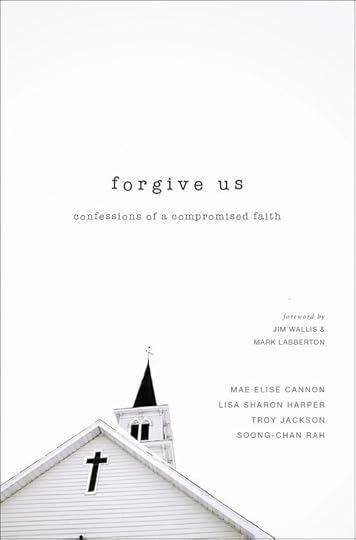
On my nightstand...
Forgive Us: Confessions of a Compromised Faith by Mae Elise Cannon, Lisa Sharon Harper, Troy Jackson, & Soong-Chan Rah
On the blog…Having finally finished edits for my next book, I’ll finally be able to get back to regular blogging. Don’t forget that this week begins our discussion around Matthew Vines’ book, God and the Gay Christian. We’ll be discussing Chapters 1-2 on Wednesday.
On social Media…This week on Facebook, we had several powerful conversations around Anne Graham Lotz’s words on gender equality and Boz Tchividjian’s article about churches that support spousal abuse. I was amazed by some of the stories you shared there. So if you haven’t already, check out the Facebook page. I’m often surprised by (and grateful fo)r the conversations we have in that space.
***
So what caught your eye online this week? What’s happening on your blog?



September 13, 2014
Barefoot in Phoenix (and my fall speaking schedule)
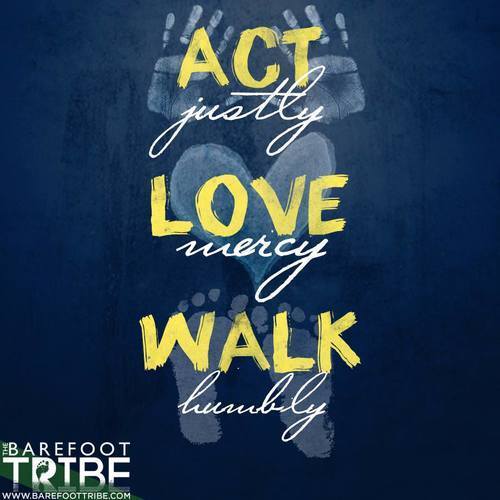
I’ve updated the events page to include my fall 2014 speaking schedule, and as you may have noticed, it’s a bit thinner than in seasons past.
After speaking at more than seventeen events last spring, which involved catching dozens of flights and a couple of stomach bugs, I made the decision—along with Dan and my speaking agent Jim—to cut back on travel this fall. Some writers love “life on the road” and thrive on the challenge of speaking to a new group in a new city every day. Others find themselves eating too many carbohydrates and seriously questioning whether man is intended for flight. I fall into the latter camp.
So as much as I love meeting you guys in person, I’m scaling back a bit, at least for a while, so I can rest and write.
That said, I’m really looking forward to the events on the schedule this year, which will take me to West Virginia, Minnesota, Arizona, Illinois, Ohio, Georgia, and Alabama...and at a much more relaxed pace.
Today I want to draw your attention to the Barefoot Tribe Gathering in Phoenix, October 16-18, which is now registering participants. The purpose of the Barefoot Tribe Gathering is to promote conversation and collaboration among Christians working for justice in their communities and around the world. I’m thrilled to be speaking alongside some of my favorite people, including Bob Goff, Becca Stevens, Dr. John Perkins, Erwin McManus, Jenny Yang, and Lindsey Nobles. You can register here.
Other events I’ll be sharing more about in the weeks to come include:
Tuesday, October 14 – Wednesday, October 15
West Virginia Annual Conference (UMC) Clergy School
Charleston, West Virginia
More Info
Thursday, October 16
Good Earth Village Launch Project
Spring Valley, Minnesota
More Info
Friday, October 17
Barefoot Tribe Gathering
Phoenix, Arizona
More Info
Saturday, October 25
ISU Wesley Imagine What’s Next Mini-Conference
Illinois Wesleyan University, Bloomington, Illinois
More Info
Friday, November 7
Ohio Wesleyan University Love Across the Spectrum Event
Delaware, Ohio
More Info
Friday, November 14 – Saturday, November 15
Dunwoody United Methodist Church Young Adult Retreat
Glisson Camp and Retreat Center, Dahlonega, Georgia
More Info
Sunday, November 16
Canterbury United Methodist Church
Birmingham, AL
More Info



September 9, 2014
The Other Lie (by Lisa Sharon Harper)

© 2005 Gianni Dominici, Flickr | CC-BY-ND | via Wylio
Believe it or not, this week marks one month since the shooting death of Michael Brown in Ferguson, Missouri, an event which sparked protests across the country and ignited some important conversations about race in America. To help us reflect on what has happened since that day—and what still needs to happen in response—I’ve invited my friend Lisa Sharon Harper to share about her experience in Missouri and to pose some tough questions about the past and future.
Lisa is Senior Director of Mobilizing for Sojourners and co-author of Forgive Us: Confessions of a Compromised Faith –which releases this month. She has written extensively on tax reform, comprehensive immigration reform, health care reform, poverty, racial and gender justice, and transformational civic engagement. Those familiar with Lisa's work know that she’s an all-around woman of valor—smart, compassionate, bold, and kind. May those with ears, hear....
***
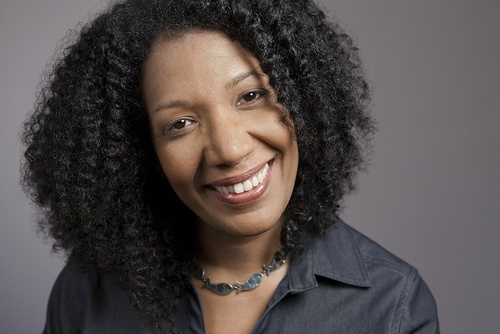
He stood. Nervous; he shifted his weight from left to right, then leaned left again, as if asking the wall to hold him up. He looked at me, unsure.
I nodded as if to say: “It’s okay to say it.”
The tall, dirty-blonde, clean-cut, forty-something ministry leader stood before about 20 Evangelical pastors and ministry leaders from across St. Louis, MO. They were squeezed around two long tables in a slightly raised and sectioned-off area of the dining room. The general public sat on ground level within ear-shot of our “private” conversation.
This dialogue at Three Kings Public House, a Washington University area bar and grill, was convened to help St. Louis’ evangelical clergy begin to process their responses to the explosive conflict taking place only 20 minutes away in Ferguson, MO.
Moments before the 40-something stood, I had shared about the biblical concept of shalom. White, black, and Asian-American leaders of evangelical churches, networks, and ministries considered the implications of three spiritual truths:
1) Every human being on the face of the earth—every person in this restaurant, every person on the street, and every single person in Ferguson—is made in the image of God.
2) That means, all things being equal, every single person on earth was created with the command and the capacity to exercise Genesis 1:26-27 dominion, which means to steward or in modern terms, to exercise agency or lead.
3) To diminish the ability of humans to exercise dominion, is to diminish the image of God in them—and to diminish God’s image on earth. And the fastest and surest way to diminish the ability of humans to exercise agency, to —to lead is through poverty or oppression.
The pastors reflected on how it made them feel (in their gut) to imagine being led by the residents of Ferguson. For Isaiah 61 says, our society’s healing will come from their leadership.
The 40-something leaned against the wall, then stood straight, looked at the group and spoke the words:
“As a white man,” he said, “I have been taught that I was created to lead everyone else.”
Another St. Louis faith leader stood and confessed: “It never even occurred to me that I would be led by the people of Ferguson. It never entered my mind as a possibility.”
Last week, I wrote a piece for Christianity Today called The Lie. That article shined light on a core spiritual lie at work in Ferguson and across our nation.
“Here it is,” I wrote, “plain and simple: Black people are not fully human. In most crass terms—they are animals.”
Today, one month after the shooting death of Michael Brown, I turn the coin to find another spiritual lie on the flip side.
Here it is—plain and simple: White people alone are fully human. In most crass terms—they were created to exercise dominion over everyone else.
Over the top? No.
Look full in the face at American political history…and current reality:
Twenty-five years before the Declaration of Independence Benjamin Franklin argued that whiteness is superior and dubbed the English to be the only truly white people.
White dominion.
Fourteen years after the Declaration that declared “all men are created equal” our founding fathers passed the , which declared only white men could be naturalized into American citizenship. The Act barred both free and enslaved blacks from the rights of citizenship, laid the foundation for the 1857 Dred Scott Decision, and triggered more than a century of Supreme Court cases like Takao Ozawa v. United States (1922), where Ozawa argued that as a Japanese man, he was white.
White dominion.
Flip forward. Blacks secured civil rights, but survey the economic landscape 50 years after the 1964 Civil Rights Act, as Nicholas Kristof did in a recent New York Times column, "When Whites Just Don’t Get It." The economic disparity between blacks and whites is worse now than it was before the Civil Rights Movement, Kristof warned. In fact, it is actually worse in the U.S. right now than it was in Apartheid South Africa. Let that sink in for a minute.
White dominion.
Now consider the five unarmed black men killed by police in the last month: Michael Brown, and Ezell Ford, and Eric Garner, and John Crawford III, and Dante Parker. According to a recent study these men and boys were the tip of the ice berg: 313 black men were killed by cops, security guards or vigilantes in 2012—that’s one death every 28 hours. An Aljazeera America report identified the common denominator between most of these deaths saying: “people who die at the hands of the police don’t obey commands and that the police initiate violence, despite there being no imminent threat to their safety.”
White dominion.
Finally, consider the militarization of our society’s response to recent racialized conflict: From tear-gassed protesters and check points on Ferguson thruways to calls for a militarized response to immigrant children fleeing oppression in neighboring countries.
White dominion.
Recounting our nation’s recurrent history of white militarized backlash after periods of ethnic progress, Dr. Carol Anderson, Associate Professor of African American History at Emory University, surmised in a recent Washington Post commentary that Ferguson was not about black rage against cops, but rather about white rage against progress. I put it in theological terms: Ferguson was about the death of white dominion and the ruling set of our nation fighting to hold onto a lie.
Within 29 years, whites will be an ethnic minority in the U.S. That demographic shift poses a grave threat to white racialized political, social, and economic dominance. Always the steely-mouthed sounding board of her party, Ann Coulter characterized the demographic shift as feeling like rape.
Ann Coulter’s feeling of violation reveals fear rooted in a core spiritual lie: She either fears 1) that something is fundamentally wrong with a world where whites don’t rule, or 2) that non-white people are incapable of leading. As a result, in 29 years our nation will falter. In either case, the root of the fear is a theological lie that whites should rule over everyone else and, by implication, whites alone are fully human.
Now here’s the kicker about core spiritual lies. Lest you think that Ann Coulter stands alone, core spiritual lies are “core” because they infiltrate the basic belief system and structures of a society. Most people live their daily lives in obedience to and guided by the lie.
In the United States, a ruling class has being established; along with it an assumed underclass. We see it clearly when we observe disparities in schools, healthcare, housing, food access, and justice. This is sin. Images of God are being diminished across our land.
In Forgive Us: Confessions of a Compromised Faith, my coauthors and I offer Nehemiah as an example of one who confronted the lies of his time. He entered into lament, understood the impact of the lies, and confessed the ways he and his people contributed to his nation’s devastation.
Now, imagine this: What would it look like for the people of God to cultivate the image of God in every corner of our nation?
And what if we did this through just investing, through disciplined consumption, and by legislating toward a world where governance affirms the truth (not the lie) - that all humanity is created in God’s image and therefore, has capacity to lead?
There is no supreme humanity. There is only humanity.



September 8, 2014
“God and the Gay Christian”: An Invitation
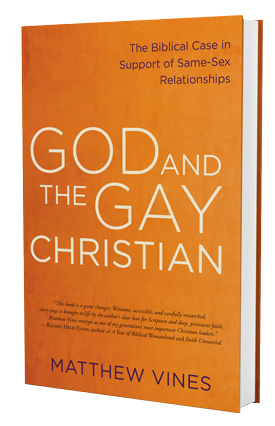
Later this week (or maybe next week), I’ll be sharing a post I’ve been working on for months now entitled, “Why I Changed My Mind About Same-Sex Relationships.”
The post has been a long time coming, but as I’ve been in conversation with my gay, lesbian, and bisexual friends (both those who support same-sex relationships and those who hold the more traditional view), as well as those Christian brothers and sisters with whom I respectfully disagree, I’ve come to believe it’s important to not only be upfront about where I stand but also to explain how I got there.
Certainly there are many other Christians struggling to make sense of what Scripture says about gender and sexuality and who long to do the right thing on behalf of the LGBT people in the Church and in the world. Contrary to popular belief, those journeys are rarely easy or straightforward. Like so many other people, I didn’t arrive at my own conclusions easily or carelessly, but only after many sleepless nights, hours of study, and lots and lots of listening.
I also believe it is possible to discuss same-sex relationships, as well as other issues related to gender and sexuality, with respect, kindness, passion, and grace, and I hope to model that as best as I can here on the blog, in conversation with you.
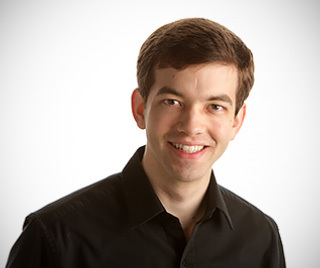
Truth: Matthew's one of the smartest, kindest guys you'll ever meet. Also, his energy and idealism are contagious. I inform him regularly that he's messing with my cynicism. It's delightfully annoying. :-)
As part of this conversation, I’d like to invite you to participate in a special discussion group here on the blog around Matthew Vines’ book, God and the Gay Christian: The Biblical Case in Support of Same-Sex Relationships.
I chose this particular book because I think it provides the most accessible and personal introduction to the biblical and historical arguments in support of same-sex relationships, and because Matthew is a theologically conservative Christian who affirms the authority of Scripture and who is also gay. His research is sound and his story is compelling. He’s also a friend. [Check out this video where Matthew presents much of the content found in God and the Gay Christian.]*
During the course of the discussion, we will also take a brief look at the response to Matthew’s book released by the Southern Baptist Convention.
I plan to host discussions on Wednesdays, following this schedule:
Wed, September 17: Intro, Chapters 1-2
Wed, September 24: Chapter 3
Wed, October 1: Chapters 4-5
Wed, October 8: Chapters 6-7
Thurs, Oct 9: Chapters 8-10
In the interest of keeping the discussion civil and diverse, we’ll have a few ground rules:
1. The comment section after each post will be carefully monitored and discussions will only last for 24 hours, after which the thread will be closed. (I reserve the right to shut down the thread earlier if the conversation gets out of hand.)
2. I will be very engaged in the comments following each post, facilitating and monitoring the conversation throughout the day. Matthew will also join in when he can. I want this to feel as much like a real book club discussion as possible.
3. It is important to me that the comment section be a safe place for those who hold a variety of views on this subject, including those who disagree with me. No one will be turned away simply because of their ideas, experiences, or convictions. However, I will promptly delete any comment that is hateful, reactive, misleading, or off-topic in order to create a safe environment for those who really want to talk.
Lord willing, we’ll begin the conversation next Wednesday. In the meantime, check out God and The Gay Christian as well as The Reformation Project, which seeks to equip LGBT Christians and allies to reform church teachings on sexual orientation and gender identity (and which has a conference coming up in November).
*Note: Though I was provided with a complimentary copy of God and the Gay Christian from the publisher, I was not compensated to review or discuss the book (or any others) on the blog.
Questions? Ideas?



September 2, 2014
"Too Heavy a Yoke": An interview with Chanequa Walker-Barnes about the StrongBlackWoman
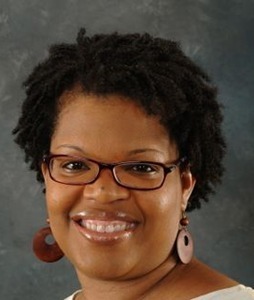
Today I am thrilled to introduce you to Dr. Chanequa Walker-Barnes, a theologian and psychologist whose mission is to serve as a catalyst for healing, justice, and reconciliation in the Christian church and beyond.
I first learned about Dr. Walker-Barnes when Christena Cleveland wrote a stirring response to her first book, Too Heavy a Yoke: Black Women and the Burden of Strength, which examines the impact that the icon of the StrongBlackWoman has upon the health and well-being of African American women. I was so intrigued I read the book myself and was challenged, encouraged, and moved by it. The chapter on the Trinity profoundly changed the way I think about self-sacrifice and interdependence, particularly as a woman, so I knew the moment I finished the book I had to have the author on the blog.
Dr. Walker-Barnes has earned degrees from Emory University, the University of Miami, and Duke University. A candidate for ordination in the United Methodist Church, she is licensed to practice psychology in Georgia and North Carolina. She is currently Assistant Professor of Pastoral Care and Counseling in the McAfee School of Theology at Mercer University. Born and raised in Atlanta, Dr. Walker-Barnes is married to Delwin Barnes, a mechanical engineer. They are the proud and very happy parents of one son, Micah. Check out her Web site here.
***
RHE: I recently finished Chimamanda Adichie’s latest novel, Americanah, and one sentence in particular jumped out at me. In the wry voice of the story’s protagonist, Ifemelu, Adichie writes: “In describing black women you admire, always use the word ‘STRONG’ because that is what black women are supposed to be in America.” That sentence took my breath away because it held so much truth, and yet it was a truth I’d never identified before. In Too Heavy a Yoke, you unpack this idea, identifying the StrongBlackWoman as “a legendary figure, typified by extraordinary capacities for caregiving and for suffering without complaint. She is a cultural myth that defines—and confines—ways of being in the world for women of African descent.” Where do we see this archetype/ideology in popular culture and in day-to-day life? Where might we recognize her?
CWB: It actually might be more appropriate to ask, Where don't we recognize her? Lifetime just premiered a new reality series called Girlfriend Intervention. The show's premise is that "trapped inside every White girl is a strong Black woman ready to bust out." It features four Black women who are "taught to always have it together and tell you like it is." They give makeovers and life advice to White women. The show seems to do a pretty accurate job of capturing the caricature of the StrongBlackWoman. Unfortunately, like most people, it fails to interrogate what that stereotype really entails. Instead, it celebrates it.
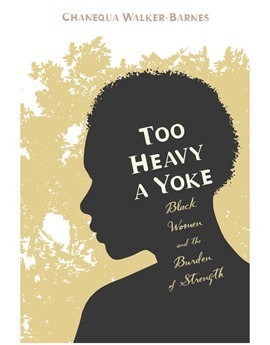
But that's not the only example. The StrongBlackWoman is ubiquitous in popular culture and in day-to-day life. It's hard to find a film or television character portrayed by a Black actress that does not personify the StrongBlackWoman in some way. You see her as Miranda Bailey in Grey's Anatomy, as Olivia Pope in Scandal, and as a key figure in every Tyler Perry film. Madea is the StrongBlackWoman on steroids!
Unfortunately, examples of the StrongBlackWoman are not limited to film. You also see her in the African American women whom you encounter on a daily basis. One of the most striking experiences that I've had in writing this book is the fact that when I describe what a StrongBlackWoman is, nearly everyone I talk to, regardless of their own race and gender, can identify some woman in their life who lives into the role – a family member, friend, co-worker, or congregation member who constantly sacrifices herself on behalf of others, who carries an inordinately heavy load of responsibility, and who rarely asks for help.
You write about how the pressure to live up to the StrongBlackWoman ideal affected your own health, self-esteem, and emotional and relational well-being. How does the pressure to be perpetually strong hurt Black women? How is it "an ill-fitting suit of armor"?
About ten years ago, I found myself in the midst of a stress-induced health crisis. I realized that my personal and emotional suffering came from trying to be all things to all people and taking care of everyone except myself—in other words, trying to be a StrongBlackWoman.
Over time, I began to realize just how widespread a problem this is among Black women and how it's impacting our health. First I noticed it among my therapy clients, many of whom were professional Black women on the verge of physical and emotional breakdown from trying to be strong. Then I noticed it in the church. And when I started looking into health statistics, I realized that there is a major health epidemic among Black women in this country that is hidden under the veneer of strength. For many indicators of physical and emotional health, Black women do more poorly than Black men and women of other races. Obesity, diabetes, hypertension, HIV/AIDS—all these occur at higher rates among Black women. And Black women often have the highest mortality rates from many major causes of death.
On the outside, it may look like we have it all together. But inside, we're suffering, even to the point of death.
You say that often “the church reinforces the mythology of the StrongBlackWoman by silencing, ignoring, and even romanticizing the suffering of Black women.” Can you give us some common examples of how that happens?
I see this happen a lot in the church when Black women suffer tragedies such as financial struggle, a terminal or fatal illness, and the death of a child or spouse. Those women are encouraged to be strong, that is, to hide any signs of distress and to pretend as if everything is okay. Recently, an ordained African American woman posted on Facebook, "Pretending to be happy when you are going through a difficult time in life is just an example of how strong a person you really are." I decided not to respond, but it was really frustrating to observe as several other Black women co-signed that message. In the church broadly, there remains this view that suffering is women's lot in life. Of course, that comes from a distortion of Genesis 3. That view becomes even further complicated when it's layered with race. In the church, it seems to me that Black women - more than any other racial/gender group - are taught that strain and suffering are indicative of holiness. We are taught to put on a good face in the midst of our struggle, rather than to ask for help. That's pretty convenient for the church, because as long as they praise us for being strong in the midst of suffering, they're excused from having to do anything about our suffering.
I think a lot of Christian women, myself included, tend to internalize Christian teachings about self-sacrifice in ways that are unhealthy. You argue that a better understanding of the Trinity can help women see mutual self-giving, rather than self-denial and self-sacrifice, as the paradigm for Christian love. How is that?
Christian tradition has long held that humanity's primary sin is pride. So we are constantly being admonished to relinquish our pride and to empty ourselves on behalf of others. "No cross, no crown" is the way we often hear it. But for many—perhaps most—women, our fundamental problem is not that we have too high a view of ourselves; it's that we have too low a view. We do not view and love ourselves as fearfully and wonderfully made in the image of the Divine. Our issue is not that we need to empty ourselves of pride and learn to deny ourselves. Most women – regardless of race – master that pretty early in life. Our problem tends to be giving of ourselves to the point where there is no self left, to the point that we don't even realize who we are and who we are called to be.
The beauty of the Trinity, though, is that it gives us a different model of relating to one another. In the Trinity, we have three beings who fully contain and are fully contained by each other without being diminished by one another. The Father, Son, and Holy Spirit are one and yet they are also unique. It's a mystery that we may never fully understand, but it points us to the idea that being in relationship with one another is not about sacrificing ourselves to the point of losing our identities. It's about being interdependent in a way that our identities are supported and reinforced by our relationships.
It’s rare to find a book that so seamlessly combines the academic and the pastoral, but Too Heavy a Yoke does this beautifully. Who do you especially hope will read it and why?
I am continually struck by the fact that there is little public discourse – in the church or anywhere – about the health epidemic facing Black women and it's connection to the myth of the StrongBlackWoman. I wanted to write a book that would raise the awareness of spiritual care professionals, to help them to see the realities of Black women's lives so that they could better minister to them. I want this book to be read by pastors, pastoral counselors, chaplains, and leaders of lay ministries. I hope, too, that it will extend beyond the church to health care professionals. And I even hope that it will find its way into the hands of Black women who are weighed down by the burden of strength.
At the same time, I didn't want this to be pop psychology. I am a professor, after all, so I wanted the book to be academically rigorous. My aim was to write the main body of the text so that it could be read by a wide array of people, sort of in the manner of bell hooks. I tried to keep the professional jargon to the footnotes.
***
Be sure to check out Too Heavy a Yoke: Black Women and the Burden of Strength.



August 29, 2014
“A Year of Biblical Womanhood” just 99¢ today!
The ebook version of A Year of Biblical Womanhood is just 99 cents today, so if you’re looking for a Labor Day weekend read, hop over to Amazon, Barnes & Noble, etc. to check it out.
Some reviews:
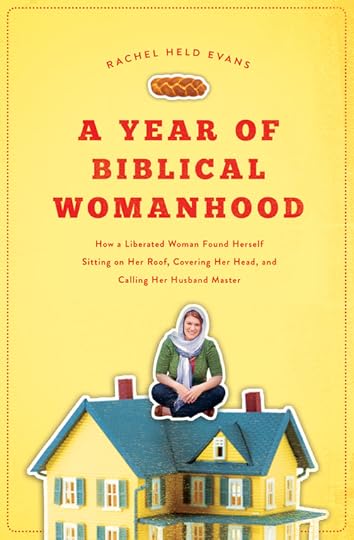
“A bitter-sweet cocktail of wisdom and absurdity that will charm you, entertain you, seduce you and, finally, instruct you! A Year of Biblical Womanhood is funny, droll, charming, and deadly serious, all in one set of covers.” -Phyllis Tickle, author and lecturer
"Rachel Held Evans is my kind of woman, Christian, and writer. She cares too much about the Bible to read what it says without wrestling with what it means. Rachel's new book is full of humor, humility, and truth." -Glennon Doyle Melton, author of Carry On, Warrior
“A triumph! ...A comprehensive, impeccably researched, heartfelt, whimsical, scripture-honoring book about the role and experience of women in Christian society. This magnificent achievement should be required reading in every church, home, student ministry, college, and seminary in the world.” -Ian Morgan Cron, author of Jesus, My Father, the CIA, and Me
“…For the first time in my life I feel like a Proverb 31 woman. I feel like I may actually make the cut.”
“In each chapter, I found myself searching my own heart and remembering that whether I do it from the end of a spatula or a scalpel or a pen, my true calling as a woman is to bring glory to God.”
“This is a fierce and fearless book.”
"Rachel Held Evans is not just another woman using the Bible to write about women’s experiences. She actually is quite adept at Biblical interpretation and has done some good reading and research and exegetical spade work when she is dealing with any kinds of Biblical texts, including the so-called ‘texts of terror’. Whether you agree with her interpretations or not, they are always possible, and often plausible and fair and deserve respect and close scrutiny."
“This book made me want to run to my Bible with a renewed sense of excitement to find the stories of women rarely mentioned in the Sunday-morning service. It made me want to do further research into several theological concepts mentioned. It made me want to meet a bunch of friends at Starbucks and have a lengthy conversation about our roles in the church and life. "
“Let me tell you something: Dan challenged me to be a better husband to my wife far more than any literature from Focus on the Family or Desiring God could ever do. Dan is the ultimate team player. He supports Rachel. I gain from the book that he makes Rachel a better person and she makes him a better person. One can critique egalitarian marriages, but the fruit of the Spirit seems to be blossoming in the midst of their relationship, so do what you will with that. As I read his thoughts he made me ask myself if I am doing all that I can do to help Miranda become all that God has made her and whether I have supported my wife in her giftedness. Someday I’d like to meet Dan, give him a big handshake, and thank him for existing.”
“The book is a game-changer, a turning point, and it’s a damn good read. Fascinating, funny, erudite, wise, complex, I couldn’t put it down.”
Read more reviews here. Order here.



August 22, 2014
Bi The Way: 7 Tips to be Inclusive of Bisexuals in Christianity (by Eliel Cruz)

Today we welcome to the blog my friend Eliel Cruz. Eliel is a bisexual Christian covering bisexuality for The Advocate and is co founder of The Intercollegiate Adventist GSA Coalition. Eliel frequently writes on the topics of sexuality, religion, and media at The Huffington Post, Believe Out Loud, and Mic. You can follow Eliel on Twitter or on Facebook.
***
“Are you full blown gay yet?”
My friend, who I hadn’t seen in years, asked me this question no less than five minutes into our lunch date. I was looking forward to catching up, but the question was like a punch in the gut. No longer was I excited to see her. During our transition from teen years to young adults, she apparently hadn’t changed her misconceptions on bisexuality. Like her misconceptions, my identity hadn’t changed either.
Bisexuality is misunderstood by both the gay and straight community—and is even less understood in the Christian community where sexuality is often limited to binary straight/gay and male/female.
When you’re bisexual, gender isn’t a deciding factor in romantic attraction. Bisexual activist Robyn Ochs has a commonly used definition saying, "I call myself bisexual because I acknowledge that I have in myself the potential to be attracted – romantically and/or sexually – to people of more than one sex and/or gender, not necessarily at the same time, not necessarily in the same way, and not necessarily to the same degree.”
I never identified as gay. I grew up thinking that you actually had to choose to be straight or gay, never realizing that sexuality and gender can be incredibly fluid. When I found the term bisexual, I’m pretty sure the heavens opened up and the angels sang. That word made sense to me. I was sexually and romantically attracted to both men and women. I came out to friends and family and began my life of being questioned for my sexuality.
We live in a world where it’s easier to deal with the black and white, one or the other, the binary. But the truth is, that’s not how God created us. We are more complex than that. God’s creation is nothing close to binary.
The Church rarely discusses bisexuality, (though we rarely touch asexuality or the transgender community either). The conversation has been centered on the gay community as a “Gay vs. Christian debate,” leaving a large portion of the LGBT community out of the conversation. That’s a huge disservice to the conversation and that disservice is perpetuated by gay and straight Christians alike. So here are 7 tips to be inclusive while discussing the LGBT community.
1. Don’t assume someone’s gay.This has happened to me many times. I’ll be discussing someone of the same sex and assumed to be gay. Or when I write about an experience of religious homophobia, I’m labeled gay. I distinctly remember Huffington Post tweeting a piece I wrote for them and saying it was from a “gay Seventh-day Adventist.” Assuming someone who is attracted to the same sex is gay can erase someone’s identity.
2. “Gay” is not an inclusive term.Language is important, especially for writers; it’s the foundation of our profession. “Gays” is not an inclusive term as it only refers only to people exclusively attracted to the same gender and leaves out those of us attracted to multiple genders. It also leaves out the transgender community. Gay has never been an inclusive term. Using “LGBT” or writing it out would be inclusive. If that’s too “long”, I would say our identities are worth the extra characters.
3. Stop calling it “gay marriage.”This one is common and it leads to the erasure of bisexual identities. Bisexual people get married to people of the same sex, but they are not in a gay or straight marriage. When we use blanket terms like “gay marriage” we assume that both people in the relationship are Gay and many times that’s not the case. An alternative to “gay marriage” is “marriage equality” or “same-sex marriage.”
4. Just because someone is bisexual, doesn’t mean they can just 'choose' a gender.Many Christians believe that bisexual people can just choose one gender over another. This is usually prescribed as the alternative to a “sinful life” of being romantically involved with someone of the same-sex. While some may think it would just be the preferable, and easier, road for bisexual people—it’s not that easy.
Like most people, I don’t merely fall in love with a gender, I fall in love with a person— a unique individual. For me, this has less to do with sex and more to do with finding a true partner in life. I may end up spending the rest of my life with a woman or a man, but either way, I am still bisexual. Because sexuality isn’t determined by the gender of your partner.
5. Bisexuals is not synonymous with polyamorous.The usual scare I get from Christians when I say I’m bisexual is the flawed idea that I’m going to need both a male and female partner. No, bisexual people don’t necessarily need a man AND a woman to be fulfilled. There are some people, just like in the straight community, that feel the need to have more than one partner. But it is not an attribute specific to bisexuality any more than polygamy is to Mormonism.
6. If you say “LGBT,” mean it.There are too many times the acronym LGBT is used, yet the specific needs and concerns for those of us that are “B” or “T”, or even “L”, are not as well represented. We are pushed aside, forgotten, or not even known. Our community is diverse. If you’re going to write, discuss, or interact with the LGBT community—actually include all of us.
If you’re an LGBT affirming church or organization, have specific programs for the bisexual community. If you write about LGBT people but only end up using gay and lesbians as examples, find bisexual and transgender examples.
7. Raise up bisexual Christian voices.There are a lot of stories from gay Christians that have received significant attention in both mainstream and Christian media. But how many times have you seen stories from bisexual Christians? Or transgender Christians? While they’re definitely out there, they can be harder to find, since they’re not being published as frequently on large platforms.
Stories are agents for change. They help us humanize the topic we talk about in a theoretical fashion. They’re an important reminder that we’re talking about is people—and in this community, we’re talking about Christians. So when you look for stories for your events, platforms, or just your individual education; seek us out. We are Christians that also have stories which need to be heard.
We have to start approaching this discussion in its full diversity, and that means including the bisexual community. There’s a thriving bisexual community even within the religious community. It’s time the church began interacting with us.
Resources:
http://www.advocate.com/bisexuality/2014/06/24/op-ed-are-you-full-blown-gay-yet
http://www.advocate.com/commentary/2014/06/10/op-ed-why-bi-so-tough-say
http://www.advocate.com/bisexuality/2014/06/02/13-things-never-say-bisexual-people
Sexuality, Religion and the Sacred by Loraine Hutchins (Editor), H. Sharif Williams (Editor)
Blessed Bi Spirit: Bisexual People of Faith by Debra Kolodny (Editor)
Bisexuality: Making the Invisible Visible in Faith Communities by Marie Alford-Harkey and Rev. Debra W. Haffner



August 19, 2014
This Is How God Handles Our Doubts (by Ed Cyzewski)
Today I am excited to share a guest post from my friend Ed Cyzewski, adapted from his new book, A Christian Survival Guide: A Lifeline to Faith and Growth, which is just $2.99 on Kindle/Nook today through Friday. Ed is one of the wisest and kindest writers I know. He lives in Columbus, Ohio with his wife and two sons where they obsess over New York style pizza and organic gardening. Check out his blog, or connect on Facebook or Twitter.
I figured this post might generate some discussion. Enjoy!
***
“Faith is a way of waiting—never quite knowing, never quite hearing or seeing, because in the darkness we are all but a little lost. There is doubt hard on the heels of every belief, fear hard on the heels of every hope, and many holy things lie in ruins because the world has ruined them and we have ruined them. But faith waits even so, delivered at least from that final despair which gives up waiting altogether because it sees nothing left worth waiting for.”
- Frederick Buechner, Secrets in the Dark
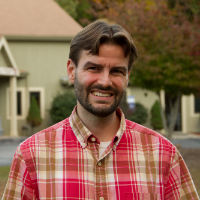
A few years ago I felt like prayer had stopped working. In fact, I began to doubt whether it had ever worked at all.
I was just talking to myself in an empty room. Quieting myself to “hear” God really didn’t work either. In fact, that just made things worse. The longer I waited with nothing happening, the more my anxiety kicked into gear, worrying that God really wasn’t going to respond.
I know that some Christians go through a season of doubt like this and can’t survive. They can’t find God and have to give up. In my own case, I held on. I can’t make it sound like I did something better. I just ended up in a different place after seeking prayer and counsel from trusted friends and family who walked with me through that season.
However, I know that many Christians and former Christians haven’t found the same resolution for their doubts. In fact, admitting your doubt feels like admitting failure, if not giving fellow Christians a reason to condemn and judge us for unbelief.
I’ve been on both sides of doubt, playing the part of judge at one point and doubter at another.
It’s easy to be dismissive toward those who have doubts because we really, really don’t want to have the same problems. It’s disturbing to hear that someone who grew up in the same church as you and attended all of the same Bible studies and prayed all of the same prayers is either doubting God or thinking of leaving the faith altogether. Let’s be honest about the problem here: If this person is about to leave the faith or has already left the faith, why can’t the same thing happen to you as well?
What should we do about doubts?
We don’t want doubts to linger, but we need to address them patiently and honestly. Where do we begin?
The Abridged, Doubt-Free BibleIf we removed from the Bible every person who doubted God, it would be a very short book. At times doubt is presented as a problem that brings about dire consequences, and there certainly are plenty of stories where doubt led to trouble. Jesus told his followers that they should pray with confidence and James wrote that those who doubt are double-minded and will not receive anything they ask for from God.
We get the impression that a little bit of doubt can ruin everything. A lot of doubt is a sure recipe for disaster.
There certainly may be times when doubt can prove extremely problematic for a Christian, but let’s take a look at a few key Bible stories to see what God did when people struggled with doubt.
We read in the book of Judges that Gideon really didn’t want to fight the Midianites. How could God beat such a powerful armed force with “warrior camels”—the tanks of the ancient world? The horseless and camel-less Israelites would get trampled for sure. But God promised Gideon the victory. This promise wasn’t good enough, and so Gideon “fleeced” God—twice. While we may imagine God sending a thunderbolt to smite Gideon, he played along, soaking and un-soaking the fleece until Gideon ran out of ideas for his fleece.
When the entire nation of Israel turned away from God, God still reached out to them through the prophet Elijah. Elijah confronted the prophets of Baal on Mount Carmel while the people stood back watching. We don’t read about the people doing anything beyond toe-tapping spectating. They weren’t willing to offer their allegiance to either side unless something happened. We usually think that faith must precede every act of God, but sometimes God surprised the Israelites with an extraordinary act to win them back.
Moving on to the disciples of Jesus in the New Testament, let’s just say that Jesus wouldn’t have had a single disciple if doubt disqualified anyone from following him. While the women who followed Jesus had a relatively reliable track record, persevering through some of Jesus’ darkest hours, the men he chose were all over the place. We give Thomas a hard time as a doubter, but let’s face it: those guys were all a mess. Jesus’ catchphrase became, “Why do you have so little faith?” (Matt. 6:30; 8:26; 14:31; 16:8; 17:20).
They didn’t know he was the Messiah for quite some time, and even when they started to believe it, Jesus ended up being a completely different Messiah than the one they’d hoped for. When faced with potentially losing their lives alongside Jesus, they all ran for it. Didn’t they have faith in Jesus?
Is doubt a good thing? Well, it’s certainly not God’s ideal. However, the consistent theme throughout Scripture is that God can work with people in the midst of their doubts. Doubt is not a deal breaker. God is patient and powerful enough to wait out our doubts and to win us back, although we should be wary of holding onto our doubts instead of the promises of God. The key for my faith has to do with the math of doubt.
If you’re struggling with doubt, then you’re in a place where your belief and unbelief are held in conflict with each other. It’s not a comfy place to be, but, as we’ve seen over and over again in scripture, Jesus can work with it. While we are warned against “doubting” Jesus, doubt does not disqualify us.
We tend to think that a little bit of doubt can erase a lot of faith. Is a little bit of faith wiped out by a lot of doubt? All of that doubt must be stronger, right?
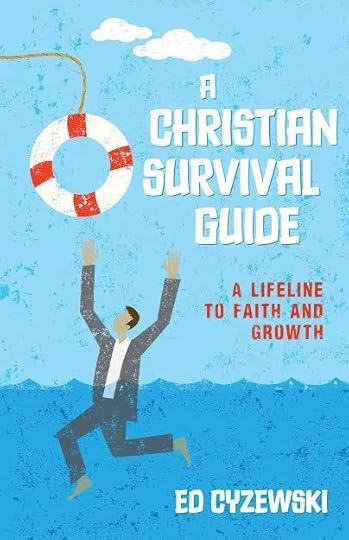
That’s not how the math of faith and doubt works.
When a man brought his demon-possessed son to be healed by Jesus’s disciples, his faith was certainly wavering. Everyone had failed him. Perhaps Jesus was his last shot before giving up. His doubt and frustration came through loud and clear to Jesus. When Jesus rebuked him and told him to have faith, the father said one of the most honest things ever in the history of humanity, “I believe; help my unbelief.”
He knew that he was struggling with doubt, but some part of him still believed. He had brought his son to Jesus after all, so he wasn’t completely lost in apathy or despair. He had a tiny bit of faith left, even though he felt overwhelmed by unbelief. You could say this little faith was like a mustard seed. It’s comforting to see how Jesus honored the father’s small, faltering faith.
I used to think that the mere mention of doubt was the end of prayer time. Who could “believe” in Jesus or ask Jesus to do anything while still harboring doubts? That guy! Jesus healed his son even though he confessed doubts.
The math of faith and doubt goes like this: A little faith > a lot of doubt.
Doubt does not necessarily cancel faith. There may be times when doubt will hold us back from God, but there is a process and a tension to faith and doubt.
What would James say about this?
James wasn’t a big fan of doubt. He wrote this about prayer: “But when you ask, you must believe and not doubt, because the one who doubts is like a wave of the sea, blown and tossed by the wind. That person should not expect to receive anything from the Lord. Such a person is double-minded and unstable in all they do” (James 1:6–8).
Perhaps this is too fine a line, but there is a huge difference for me between someone who is completely convinced that God doesn’t exist and the person who prays and confesses struggles with unbelief. The mere mention of our doubts to God shows that we are at least admitting there’s a chance God can do something about them.
Sometimes the most faith-filled thing you can do is to tell God about all of your doubts, even if you aren’t sure what’s going to happen next.
What if we let God become a part of the process of our believing? What would happen if we spoke with complete honesty to God about everything we don’t understand or struggle to believe? Doesn’t it take faith to just admit to God that we can’t pray in the first place?
It’s not like faith is a commodity that someone can buy and own—something that you either have or don’t have. Faith isn’t instant all of the time. Faith is often a process. Perhaps we overemphasize dramatic conversion stories to the detriment of those who have struggled for their hard-won faith over a series of conversations or after years of struggling with Scripture.
Surviving DoubtMy current pastor has seen so many people come to faith in Jesus because he gave them space to process their beliefs. He welcomes them where they’re at, pointing out the common ground between them and Jesus and then welcoming them to look into the details further. Perhaps we’ve overemphasized the importance of making sure everyone is on the exact same page or has prayed the same prayer.
We all find God through different questions and processes. The end result is that Jesus saves. The catch is that sometimes faith comes in an instant, sometimes it takes years, and sometimes it’s lost and only found many years later.
As serious as we need to take doubt as a long-term threat if it’s allowed to grow and overshadow the voice of God in our lives, doubt also simply comes with the territory if you’re living by faith. Doubt is the dark side of the coin for Christianity. We won’t have 100 percent perfect faith all of the time. Have you ever worried about God’s provision or doubted God?
You’re in good company.
Nearly every person who followed Jesus in the New Testament passed through a time of doubt and even struggled with doubts after discovering that Jesus truly was the Messiah. If you haven’t ever doubted something about God, you will eventually. It’s a good thing we know that God answers prayers that confess, “Help my unbelief.” The tiny seed of faith in that prayer is more than enough to help us survive when doubts threaten to upend our faith.
***
Don’t forget to check out A Christian Survival Guide, just $2.99 today.



Rachel Held Evans's Blog
- Rachel Held Evans's profile
- 1710 followers



